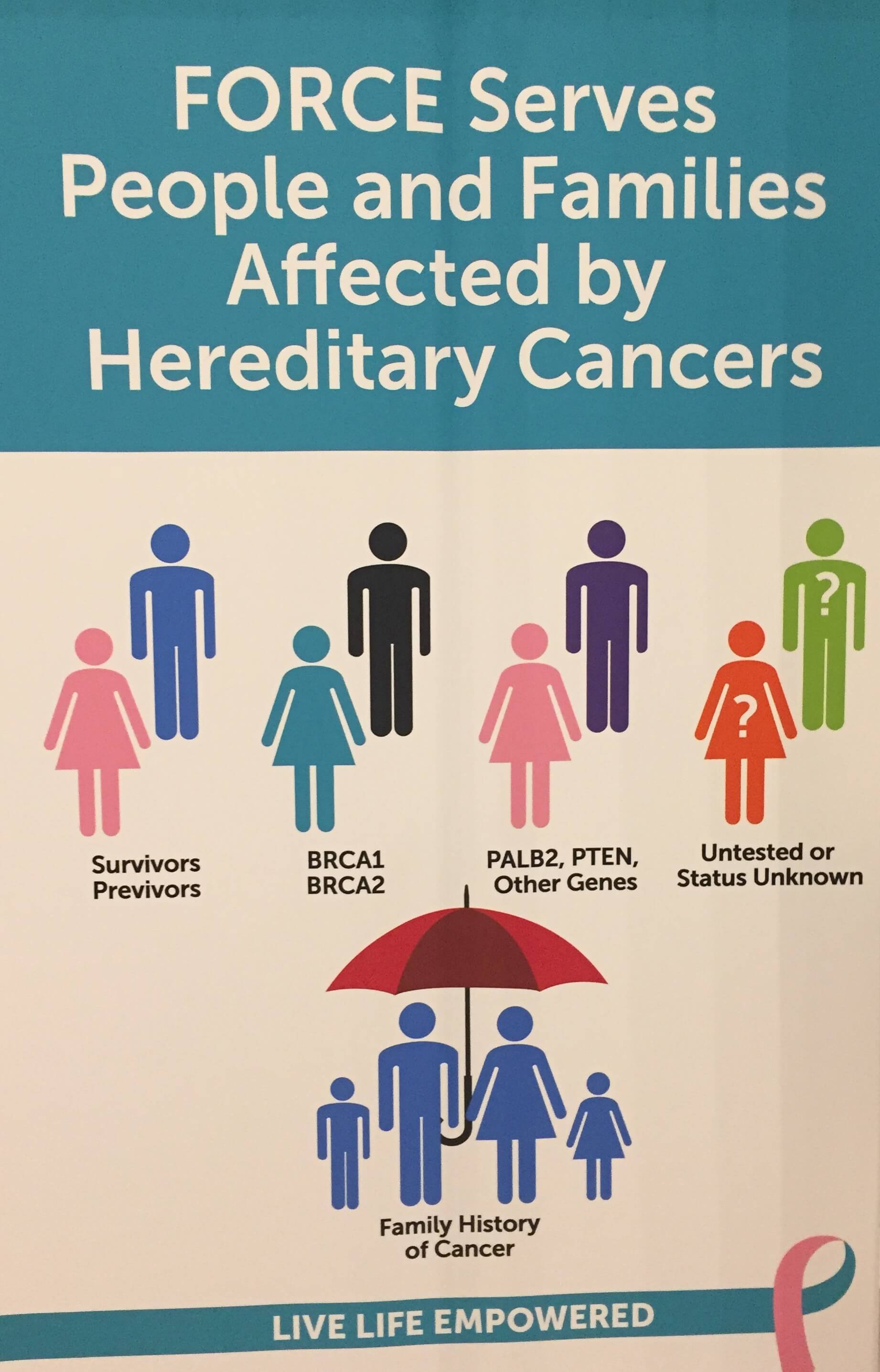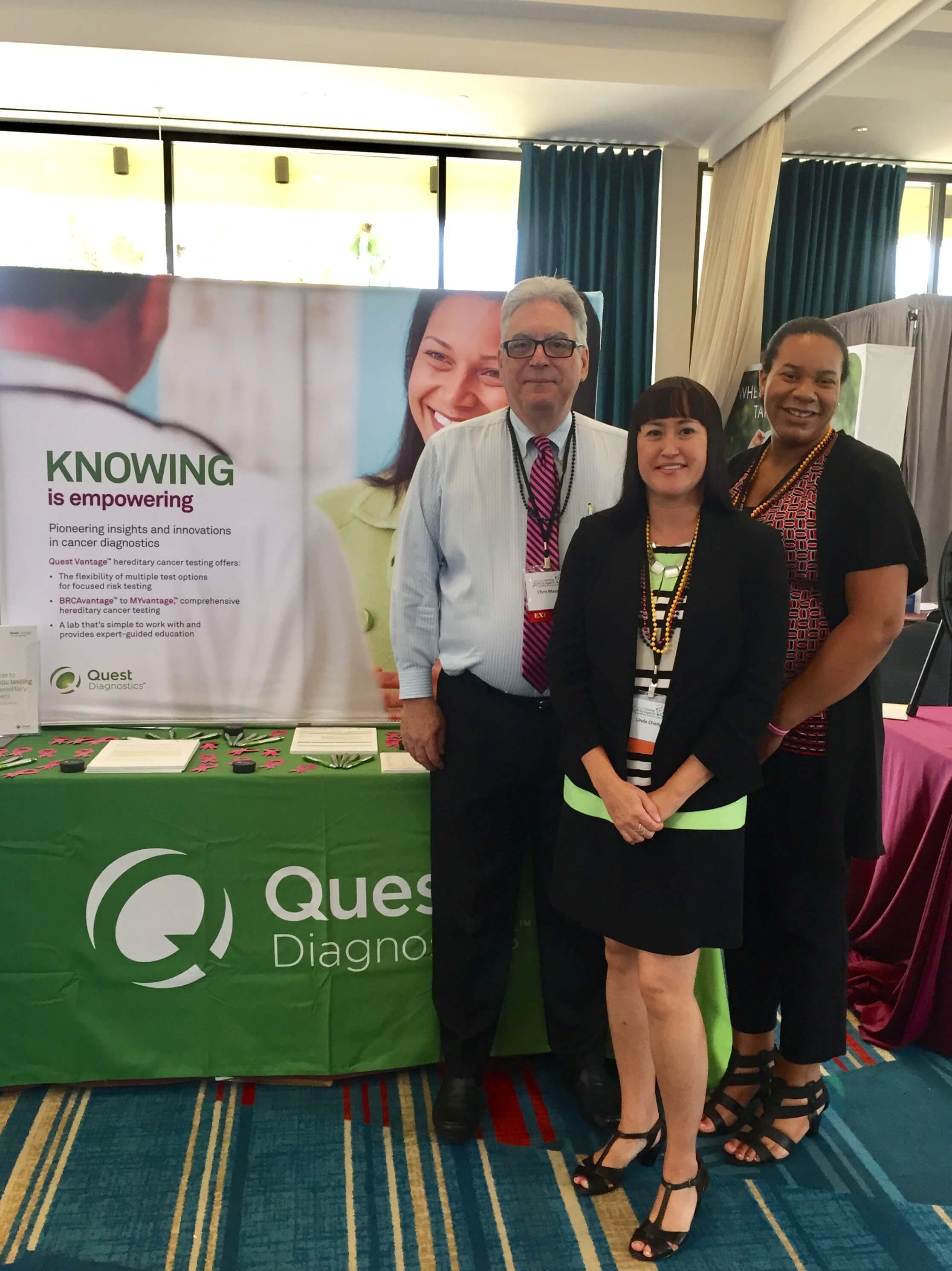Just about everyone loves to visit Florida, but who knew that over 600 people would travel to the Sunshine State to spend three days attending educational sessions in windowless rooms for the 10th Annual Joining FORCEs Against Hereditary Cancer conference?Founded in 1999 by Sue Friedman, Facing Our Risk of Cancer Empowered (FORCE) is a non-profit organization devoted to supporting women who may be at increased risk for breast and ovarian cancer and their families. F

ORCE also provides information and support for men who are at increased risk for hereditary cancer.There was a lot to celebrate at this June’s conference in Orlando, FL. Through a grant from Centers for Disease Control and Prevention, FORCE created the e
Xamining the
Relevance of
Articles for
Young
Survivors (XRAYS) program. XRAYS provides tools for evaluating reports of new breast cancer-related research to help empower young breast cancer survivors and high-risk women. This program has provided reviews and ratings for almost 100 news media articles and will soon expand to the additional hereditary cancer sites FORCE focuses on: the ovary, pancreas, and prostate.There was also Project Plural, FORCE‘s free Peer Navigation Program,
which will be launched later this year. This program matches individuals with a volunteer (person with same gene, cancer type, or cancer status) who will provide information on access to genetic testing, finding doctors, options for cancer screening, prevention, and treatment, paying for services, and getting support.The FORCE conference is a gathering place for clinicians, patients, and families to discuss the unique issues facing individuals with hereditary breast and ovarian cancer. Educational sessions provided by clinical experts ranged from Genetics 101 to Fertility Options for Cancer Survivors and Previvors (individuals who are survivors of a predisposition to cancer but who haven't had the disease).

Throughout the conference, numerous participants shared their stories about how they learned of their gene mutation status. Many had been identified through their providers who offered testing due to a young age at cancer diagnosis (see
questvantage.com/what-is-hereditary-cancer). Some were notified by family members whose testing identified a gene mutation, who then encouraged their blood relatives to consider testing themselves. While for others, testing was delayed as their providers did not initially recognize them as candidates for genetic testing based on their family histories of cancer. Worksheets and tools, such as Take the Quiz (see
questvantage.com/take-control), were shared at the Quest Diagnostics exhibit booth to empower clinicians to identify patients with an increased risk for hereditary cancer.
Learn more about hereditary cancer testing at Quest Diagnostics at QuestVantage.com. To learn more about FORCE, visit FacingOurRisk.org. To learn more about the Genetic Counseling profession, visit the National Society of Genetic Counselors website at NSGC.org.
Your Privacy Choices






